Two French, One Belgian Nationals Indicted In Iran: Judiciary
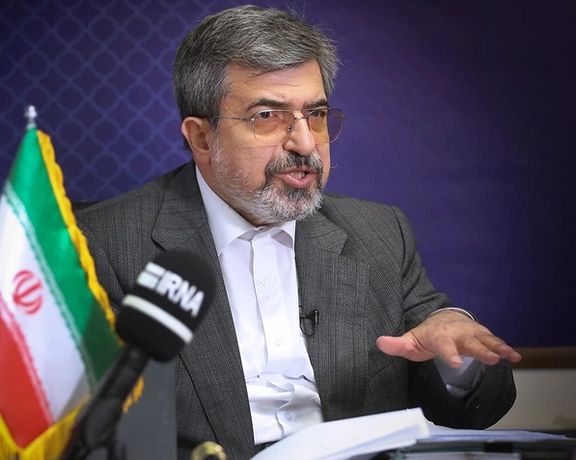
Iran’s hardliner Judiciary says two French and one Belgian national have been indicted for “espionage and working against Iran’s national security”.

Iran’s hardliner Judiciary says two French and one Belgian national have been indicted for “espionage and working against Iran’s national security”.
In a press briefing on Tuesday, Judiciary Spokesman Masoud Setayeshi said the two French citizens have been indicted, but no verdict has been issued for them yet.
Regarding the Belgian national, Setayeshi said he was indicted and as soon as the verdict is issued the judiciary will announce it.
However, Setayeshi did not identify the detainees and did not provide any more information about their charges.
On the issue of almost 40 other detained foreign nationals, Setayeshi said they have been arrested in different regions of the country and are accused of different charges. He said the number of those other nationals is “limited” and the judiciary will give more information about their status in future.
Following Supreme Leader Ali Khamenei’s lead, Iranian officials claim that the ongoing antigovernment protests across Iran – ignited by death in custody of 22-year-old Mahsa Amini -- are instigated by foreign enemies.
After the outbreak of protests, Iran said in late September it had detained nine foreign nationals linked to unrest, including those from France, Germany, Italy, Poland and the Netherlands.
Meanwhile, several foreigners visiting Iran have disappeared, confirming earlier reports that the Islamic Republic is taking foreign citizens hostage.
Tehran denies any policy of hostage taking and insists all foreigners are tried according to legal process. However, it has frequently shown readiness for prisoner exchanges and participated in swaps in the past.

Iran’s Judiciary does not allow protesters and dissidents to choose their own lawyers during trials that could even bear the death sentence for the defendants.
According to Iran's laws, those on trial for crimes against national security can only be represented in court by lawyers that have the “endorsement” of the chief justice himself. Almost all dissidents are accused of acting against national security among other crimes, such as insulting the Supreme Leader or unlawful assembly.
The restriction also applies to protesters who have been charged with "corruption on earth" or "waging war against God'' both of which bear a death sentence. Iran's revolutionary courts have sentenced more than 50 protesters to death on such charges since November.
Two protesters who were hanged in December, Mohsen Shekari and Majidreza Rahnavard, were both deprived of the right to choose their own lawyers. They were represented at their trials by court-appointed lawyers. The two young men, apparently, met their attorneys on the day of their trial at court where the lawyers’ role was limited to keeping up appearances of a fair trial.
Iran’s Judicial system, controlled by the Supreme Leader, oversees both judges and prosecutors, while closely coordinating with security and intelligence entities.
Families of some protesters who are on trial allege that the lawyers representing their loved ones made very little effort to present a proper defense and their only statement in court was what was dictated to them by the judiciary and security agents to ensure a pre-determined outcome. The hanging of the two young men was meant to instill fear among the people and keep them away from the protests, the families and others say.
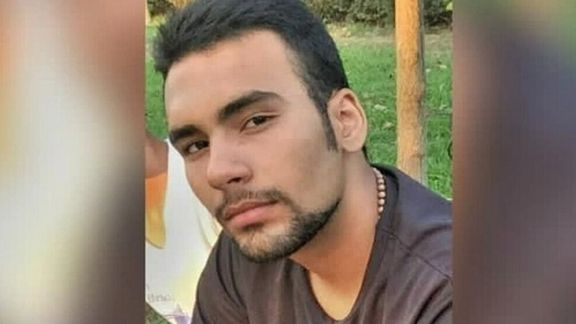
Mashallah Karami whose son Mohammad-Mehdi Karami has been sentenced to death in Alborz Province for alleged participation in the killing of a member of the Basij militia told Etemad newspaper recently that he tried to contact his son’s court-appointed “endorsed lawyer” for a week, after his sentence was announced, to proceed with appeals but never received a response from him. “The court-appointed lawyer refused to let me have the address of his office to go there and tell him what my son has told me for using it in his defense.”
“It’s a matter of life and death for a young man. Shouldn’t the family of the accused be allowed to have their own attorney?” Karami who says his son has sworn his innocence to him said.
Nemat Ahmadi, lawyer and professor of law, told Arman-e Emruz newspaper in December that some of the “endorsed” lawyers, even when appointed by the court rather than the accused, work for extremely high fees. “We heard recently that one [such] lawyer had demanded $250,000 from the family of the accused,” he said.
Ahmadi also pointed out that one of these lawyers told the judge at a recent trial, when he was asked if he had spoken with his client, that he had met his client who was hospitalized for “half an hour” before the trial.
Just a week ago, defense attorney Amir Raesian announced that authorities had finally accepted him and his colleague Roza Etemad-Ansari to represent jailed dissident Toomaj Salehi and that they would be meeting with Toomaj after reading the case files.
The lawyer’s announcement came amid international pressure on the Islamic Republic to free Toomaj who was arrested in late October. The 32-year-old popular rapper could be facing a death sentence for vague charges based on Islamic law, "corruption on earth" and "waging war against God”, brought against him.
“It’s a first and important milestone,” member of the German Bundestag Ye-One Rhie who recently accepted the rapper’s political sponsorship, tweeted about the new development in the case after the announcement.
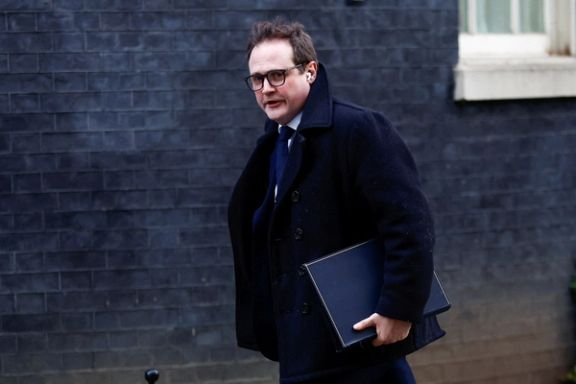
Britain will officially declare Iran's Revolutionary Guard (IRGC) as a terrorist group, the Telegraph reported on Monday, citing sources.
The IRGC announced on December 25 the arrest of seven people allegedly linked to Britain, for their role in recent protests, prompting what could amount to a new hostage situation. The foreign ministry in Tehran accused the UK of a “destructive role” following the news about the arrests.
The move by Britain, which will be announced within weeks, is supported by Britain's security minister, Tom Tugendhat, and Home Secretary Suella Braverman, the report said.
Tehran's allegations of foreign involvement in the protests have been accompanied by arrests of dozens of dual nationals, part of an official narrative designed to shift the blame away from the Iranian leadership.
Foreign Secretary James Cleverly in recent weeks had repeatedly claimed that that the IRGC was already sanctioned “in its entirety.”
The British foreign office tweeted December 27 a clip of Cleverly listing British sanctions against Iran including “the IRGC in its entirety.” Cleverly December 13 said in parliament: “We already sanction the IRGC in its entirety.”
Proscribing Iran's Revolutionary Guard as a terrorist group would mean that it would become a criminal offence to belong to the group, attend its meetings, and carry its logo in public.
The UK Home Office did not immediately respond to a request by Reuters for comment on the Telegraph report.
Britain's Prime Minister Rishi Sunak on Wednesday urged Iran to stop detaining dual nationals, saying the practice should not be used to obtain "diplomatic leverage".
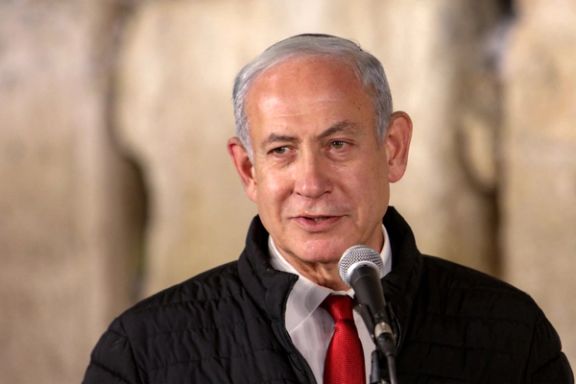
Israel’s new ministers are touting their relationship with the United States, with foreign minister Eli Cohen promoting a broad front against Iran.
Cohen said Monday that the “international community must stop burying its head in the sand when it comes to Iran,” and that Israel should “stop Iran from attaining nuclear capabilities in every way.”
Cohen said the new government led by Benjamin Netanyahu aimed to “deepen ties with European countries and to bolster them compared to past years.” He brushed off any human rights concerns in Europe, attacking Friday’s United Nations General Assembly resolution that sought an advisory opinion from the International Court of Justice (ICJ), the UN’s highest court, on Israeli occupation of Palestinian land. Cohen also dismissed the prospect of Israel facing war crimes suits at the International Criminal Court, which Israel and the US do not recognize. Washington voted against the resolution, which passed 87-26.
Some of the Israeli press has made much of the personal relationship between Netanyahu and US President Joe Biden. Last July, when Biden arrived for his trip to Israel, he told Netanyahu, then in opposition, “You know that I love you.”
While the latest Israeli military intelligence report favors efforts to reach an international agreement over Tehran’s nuclear program, Netanyahu has long rejected such a course, and strongly supported former US president Donald Trump withdrawing from the 2015 Iran nuclear deal, the JCPOA (Joint Comprehensive Plan of Action). While Biden came into office committed to restoring the JCPOA, any tensions over this with Netanyahu are likely to soften as Biden officials place no ‘focus’ on JCPOA talks and extend sanctions on Iran.
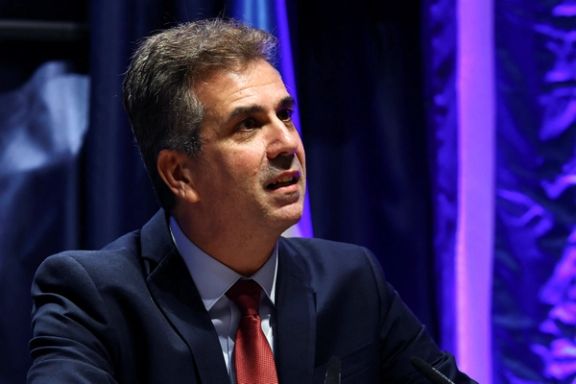
Netanyahu has also said he wants to extend Israel’s Trump-brokered ‘normalization’ agreements with some Arab states, stressing an Iranian threat. But he is unlikely to convince Saudi Arabia since his government now includes ultra-Zionists committed to speeding up Jewish settlement in occupied Palestinian territory. Riyadh voted Friday in favor of the UN resolution referring Israel to the ICJ.
‘Significant contribution to regional stability’
Cohen said Monday he would meet in March in Morocco with counterparts from the ‘normalized’ states – Morocco, United Arab Emirates, Bahrain and Sudan. This would, he said, develop “a significant contribution to security (and) regional stability.” The Times of Israel reported Tuesday that Netanyahu planned to visit the UAE officially for the first time, possibly next week.
After European Union foreign policy chief Josep Borrell highlighted in December dim prospects for the JCPOA, Ali Bagheri Kani, a deputy Iranian foreign minister and Tehran’s lead nuclear negotiator, said Tuesday Tehran would “continue serious and effective cooperation” with the International Atomic Energy Agency (IAEA).
One challenge in JCPOA talks has been Tehran’s demand that the IAEA close an enquiry into uranium traces found at ‘non-nuclear’ sites, an enquiry Iran says followed accusations made by Netanyahu in 2018 but which the agency says concern Tehran’s ‘safeguards’ obligations under Nuclear Non-Proliferation Treaty.
‘The ball in the Western court’
The US and western European states successfully moved resolutions in June and November at the IAEA governors’ board censuring Iran over its approach to the agency, but Russia and China argued this is counterproductive given the main responsibility for JCPOA restoration lies with the US as the party that abandoned it. Russia’s IAEA ambassador Mikhail Ulyanov tweeted Tuesday that “the ball” was in “the Western court.”
Bagheri Kani offered his views on the JCPOA at a ceremony marking the third death anniversary of Iranian general Qasem Soleimani, killed in Baghdad along with nine others January 3, 2020, by a US drone strike. Bagheri Kani stressed Soleimani’s success in “building power by relaying on the capacities in the region” so making “terrorism fail” – referring to the commander’s role mobilizing Iraqi forces against the Islamic State group (Isis, or Daesh).
Bagheri Kani repeated Tehran’s previous threats that the foreign ministry and judiciary were continuing, along with Iraq, to follow routes under international law against “the agents of the assassination” of Soleimani, whose death the UN special rapporteur called ‘unlawful killing.’ The deputy foreign minister gave no details.
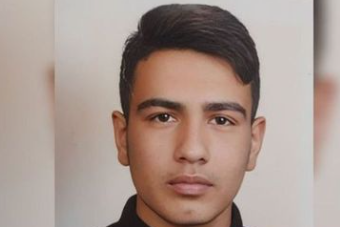
Reports say an 18-year-old who was arrested during nationwide protests in Iran has been sentenced to double death on charges of “war against God” and “corruption on earth”.
The US-based Human Rights Activists News Agency HRANA reported Monday that Mehdi (Shayan) Mohammadifard, who was arrested in the northern city of Nowshahr on October 2, has received two death sentences issued by a Revolutionary Court.
He has also been sentenced to seven years of penal service on charges of “insulting the Supreme Leader”, “acting against the county’s security”, as well as “propaganda against the institution”.
HRANA added that this political prisoner was deprived of the right to have a lawyer and in the absence of his chosen solicitor, the court accused him of "directing and planning" the protest rally on September 21 in Noshahr.
According to judiciary claims and the issued verdict, five people were killed during the protest.
An informed source close to Mohammadifard's family said, “all the confessions by the defendant during the interrogation were obtained under duress.”
“The only documents against him, which led to the death sentence, are the forced confessions obtained during the interrogation, as well as a film attributed to Mehdi, in which the face of the person is not clear at all,” added the source.
HRANA also wrote that in recent days, it has identified 58 citizens who are sentenced to death or are at risk of receiving the death sentence.
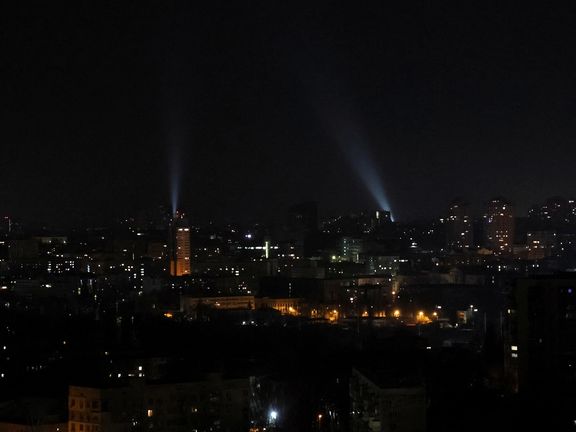
Iran claimed Monday that Ukraine has never submitted any proof of Iranian-made drones being used by Russia in the war, as Russia launched another large attack.
Ukraine said waves of Iranian-made Russian drones targeted infrastructure in Kyiv and surrounding areas on Monday, damaging energy facilities and causing some power outages, officials said, as Russia extended its bombardment into the second day of 2023.
Ukraine’s air force said that its air defense systems destroyed all of Russia's 39 Iranian-made Shahed 131 and 136 drones that targeted Ukraine overnight in what it said was a “massive attack”.
Iran’s foreign ministry spokesman Nasser Kanaani in his weekly briefing implicitly denied the use of Iranian-made drones and said Kyiv has never produced any evidence.
Ukraine said December 13 that it provided Iran with the evidence. "We are not surprised by yet another objection from Iran regarding the supply of weapons to Russia. During the technical meeting, Ukrainian experts provided the Iranians with the sufficient evidence," Foreign Ministry spokesman Oleg Nikolenko said during an interview with Kyiv-based news agency Interfax-Ukraine.
Iran’s decision to supply weapons to Russia has played a major role in the deterioration of its already frayed ties with Europe that has put nuclear talks with Tehran on the back-burner since evidence emerged of the kamikaze drones being launched by Russia in October.
Kanaani also spoke about these talks, having little to offer as a sign of any positive movement. After 18 months of negotiations to revive the 2015 nuclear accord known as the JCPOA the talks broke down in early September. The United States has said i tis not focused on the diplomatic effort any more because Iran presented last-minute extraneous demands.
Meanwhile, nationwide antigovernment protests in Iran have posed the most serious challenge to the Islamic Republic in its 43year history, with the economy in serious trouble. Consequently, Tehran has been showing renewed interest in reviving the nuclear talks, because the process, if successful, could end harsh US sanctions and bring a much-needed financial relief to the embattled regime.
Kanaani insisted that Iran is ready to conclude the nuclear talks based on a draft agreement prepared "after months of difficult talks," referring to what the European Union submitted in August to all sides to wrap up the negotiations. It was at this juncture when Tehran and Washington were giving their feedback to the draft that talks came to a standstill.
Kanaani also tried to put a positive spin on chances of improving relations with Saudi Arabia and Egypt, amid its regional isolation. Iran was not even invited to tripartite defense talks between Russia, Turkey and Syria last week, although it is a major player in the Syrian conflict. It has also not been invited to a similar meeting of foreign minsters to take place in the second half of January.
Asked about why Iran has not been invited, Kanaani simply replied that "Russia, Turkey and Syria are well aware of Iran’s decisive role in the fight against terrorism in Syria and its support for the people and the government [of Syria]".